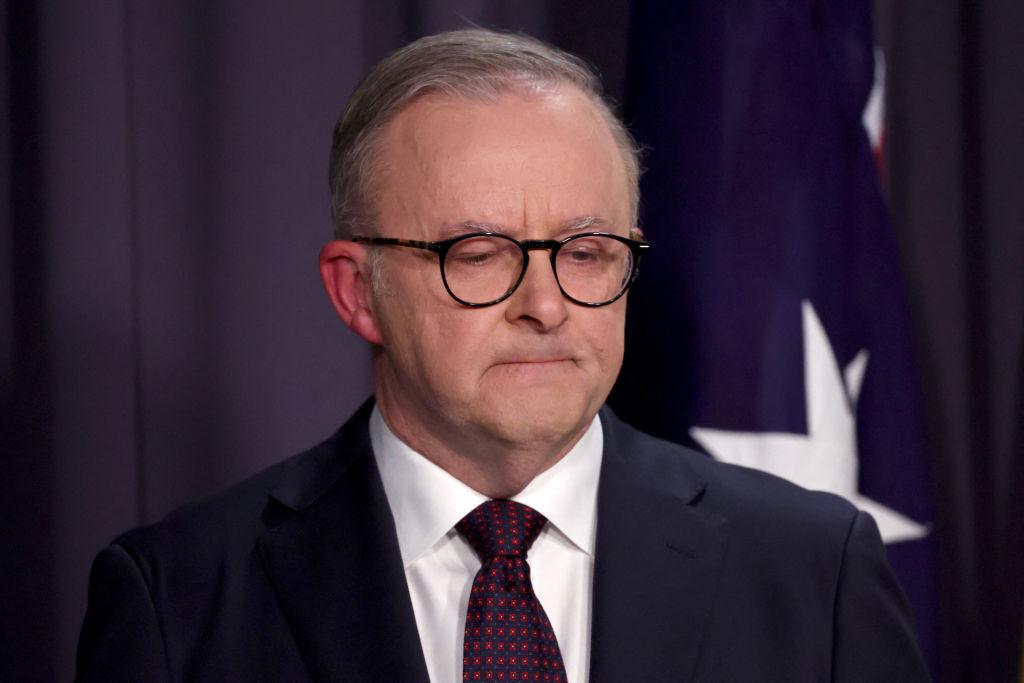The fallout from the Indigenous voice referendum is expected to dominate parliament when it returns from a four-week break.

Australia's Prime Minister Anthony Albanese reacts as he speaks during a media conference at Parliament House in Canberra, Australia, on Oct. 14, 2023. David Gray/AFP via Getty Images




